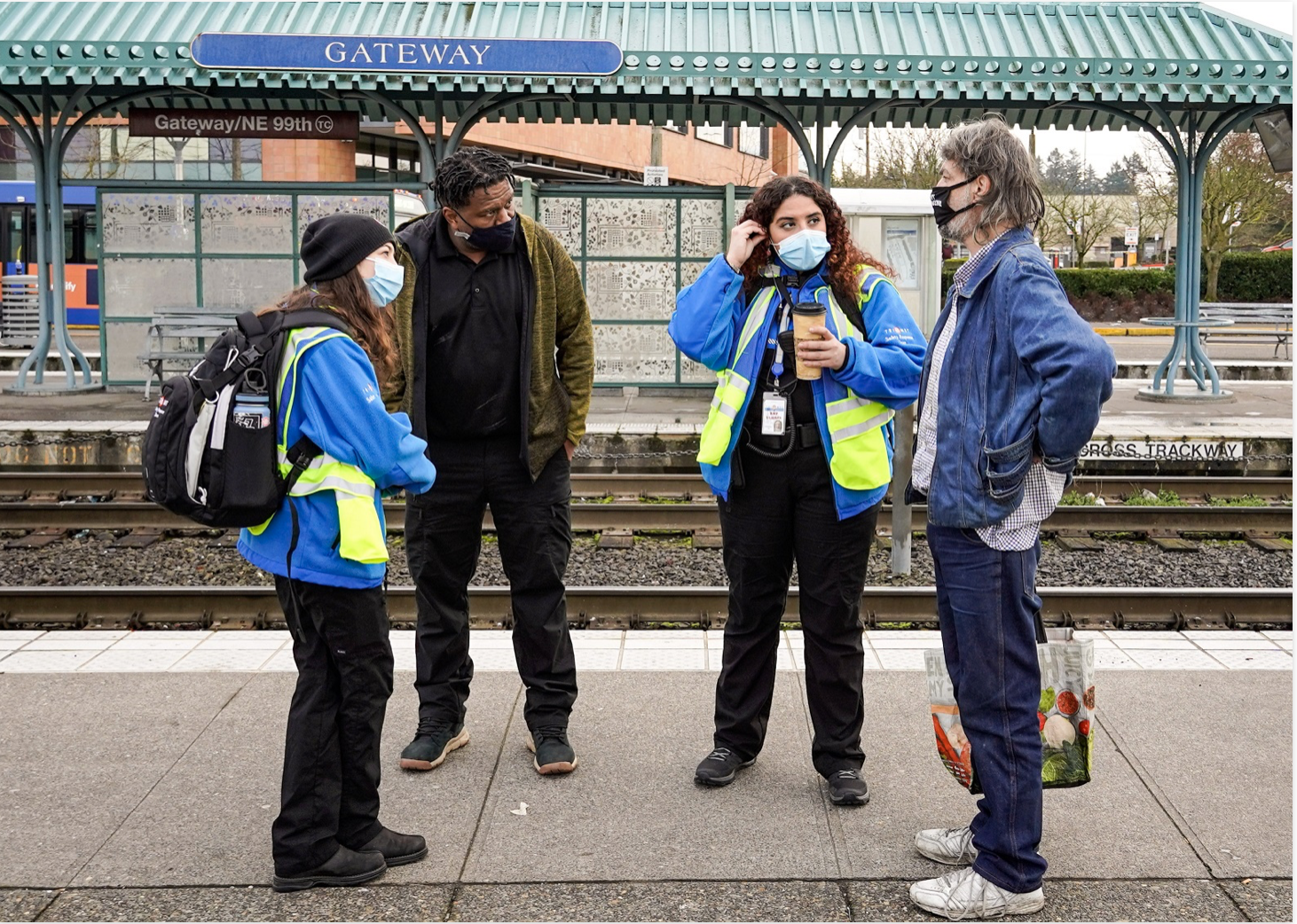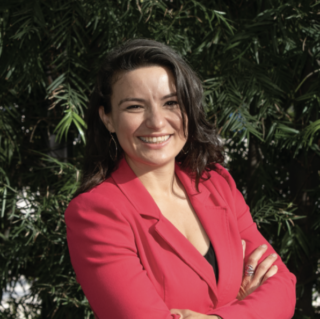Cycling News & Blog Articles
How can we improve safety on public transit?
Building an equitable and effective public transit system requires that all people feel safe and comfortable using it. Unfortunately, that’s not the case in a lot of places – especially for women and people of color, who are most vulnerable to harassment and assault when using public transportation – and this can have a big impact on people’s mobility and ability to get around.
Madeline Brozen, deputy director of the Lewis Center for Regional Policy Studies at the University of California, Los Angeles, spoke last week at a Friday Transportation Seminar hosted by Portland State University’s Transportation Research and Education Center (TREC).
We can improve mobility and safety without furthering car-dependence. Owning a car is expensive, and many low-income people don’t have driver’s licenses at all.
Brozen has studied how transit systems can enhance the needs of women and people of color. Freedom of mobility is vital when it comes to accessing opportunities, and a well-functioning public transit system will be able to provide that freedom to the people it serves. In this seminar, she provided some insights on how people’s experiences and perceptions of safety on public transit influences their mobility and what cities can do to improve.
Although this seminar focused on women’s experiences, Brozen made sure to point out the importance of intersectional approaches to this research.
“If you’re only looking at gender, and not looking at gender and race or gender and income, you are likely looking only at the most privileged women,” she said.
Through her research about safety on public transit systems around the world, including in her home city of Los Angeles, Brozen has surveyed students about their experiences to identify trends that can inform how policies should shift to better accommodate safety needs.
Experiences vary in different cities around the world, but researchers found women and people of color report feeling unsafe on public transit during the day and night at the highest rates.
People who feel unsafe using public transit may make a variety of behavioral changes that limit their mobility. These behaviors may include only traveling during the daytime, only traveling with someone else and avoiding certain stops or stations. (You can see some data from slides Brozen presented below, and the full presentation is available here.)
Perceived danger could also mean someone chooses to drive a car – if they have access to one. But in order to curb carbon emissions resulting from private transportation, we need to end car-dependency. Although Brozen’s research shows that driving a car does provide access benefits for people, especially low-income women of color, we can improve mobility and safety without furthering car-dependence. Owning a car is expensive, and many low-income people don’t have driver’s licenses at all.
Here in Portland, public transit activists have sought to make our transit system safer for all people. Bus Riders Unite, a transit activist group affiliated with environmental justice group Organizing People Activating Leaders (OPAL), and Youth vs. ODOT protesters have pointed out safety concerns inhibit the kind of public transit usage that’s necessary to meet carbon reduction goals.
Advertisement
Instead of increasing armed police presence, however, anti-racist and public transit safety activists have called on TriMet to minimize transit police funding and use other methods to ensure community safety.
During the 2020 reckoning against racist police brutality that spurred months of continued protests in Portland, TriMet made a commitment to shift funding away from Transit Police and toward alternative public safety services to keep riders and employees safe.
Recently, TriMet shared information about its new Safety Response Team, an unarmed group of people trained in conflict resolution who aim to connect people with community-based resources instead of punishing them.
However, critics have expressed skepticism about this new initiative, pointing out that members of the Safety Response Team are being trained by Portland Patrol Inc (PPI), a private security firm that has close ties with the Portland Police Bureau.
Advertisement
Brozen advocates for a nuanced approach to safety on public transit that takes different needs in different communities into consideration. People who live in low and medium density neighborhoods, for instance, need safety approaches for traveling longer distances than people who live in higher density neighborhoods and don’t have to travel as far. Something like TriMet’s Safety Response Team also should be fine-tuned to meet specific needs.
Making service more frequent so people don’t have to wait alone at stations or stops for long periods of time and improving lighting are two things that can make public transit more useful, accessible and safe.
The bottom line is: more resources need to be put into public transit systems. The more attention cities give to advancing public transportation in general, the better people from marginalized communities will be served.
Taylor has been a BikePortland’s staff writer since November 2021. She has also written for Street Roots and Eugene Weekly. Contact her at This email address is being protected from spambots. You need JavaScript enabled to view it.



